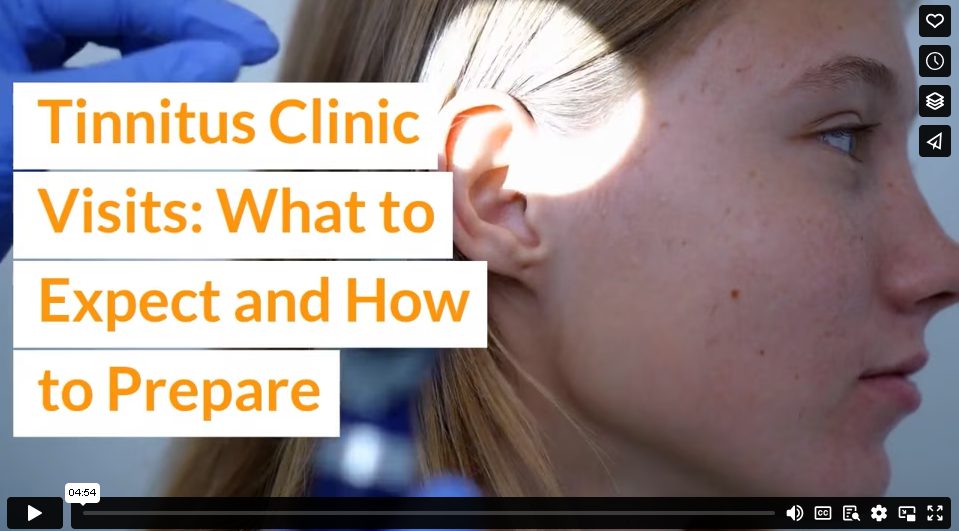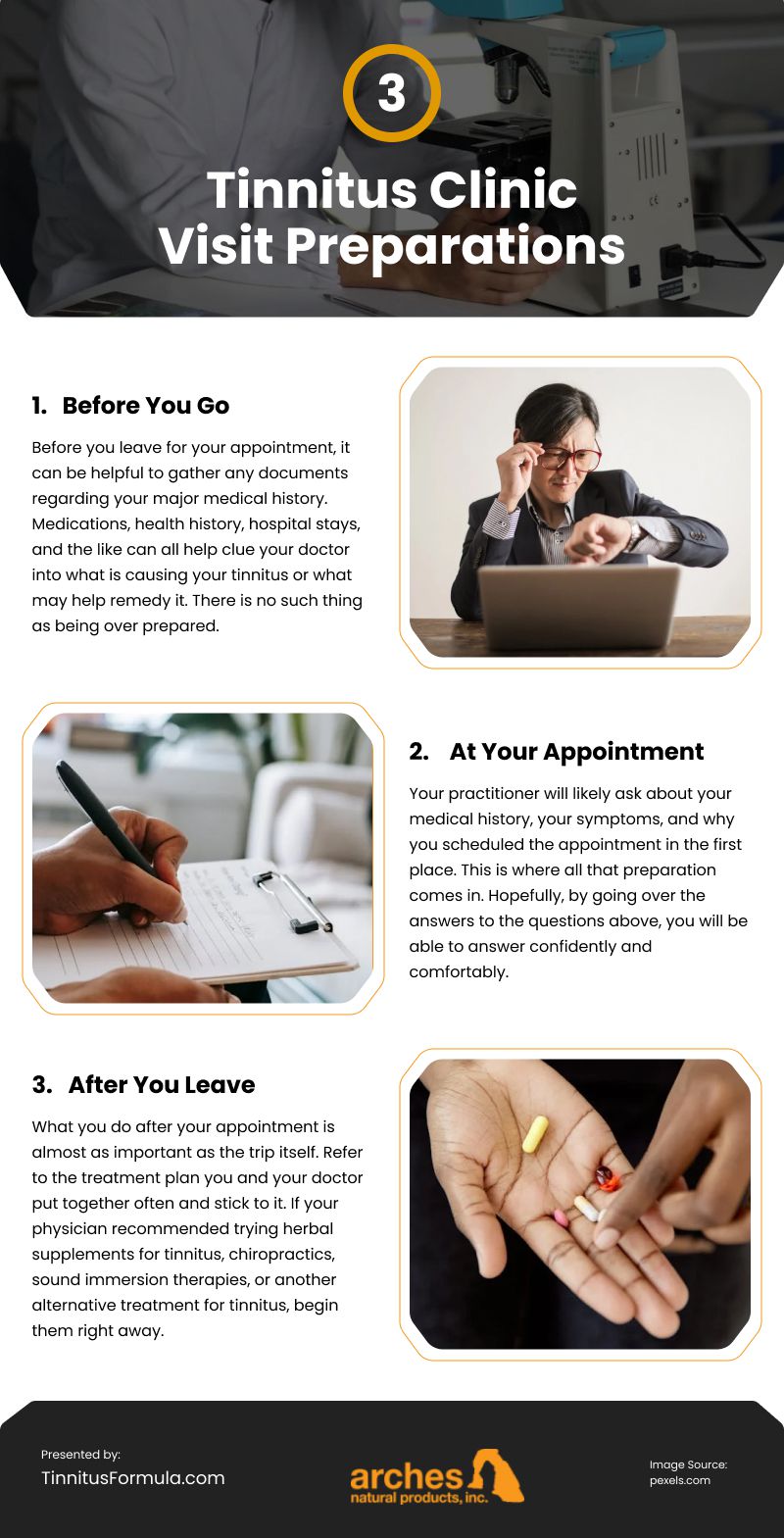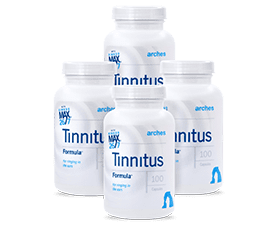By Barry Keate
Barry Keate, has lived with tinnitus over 40 years and has published 150+ research articles on numerous aspects of tinnitus. He is an expert on the condition and a well-known advocate for those with tinnitus.

(Racool_studio/Freepik)
Whether you are going for your first-ever appointment or know the secretary by name, a trip to the audiologist or tinnitus specialist can be daunting. The good news is that it doesn’t have to be. It’s important to remember that visiting a hearing clinic is all about helping you sort out your hearing and finding relief from the symptoms you are experiencing.
To ease any worries you may have about your upcoming appointment or to give you that extra push to schedule it in the first place, we have put together a guide to help prepare you for your trip to the clinic. All you have to worry about is getting there on time.
Before You Go
You likely already know why you are booking an appointment with a hearing specialist, but in preparation, here are a few things to think about and have answers ready for:
- When did your hearing problems start?
- Did anything trigger these issues, such as an accident or loud environment, or did they appear randomly?
- What do your tinnitus symptoms sound like? Do you experience a ringing, buzzing, or clicking sound?
- Are your symptoms in one or both ears? Is one worse than another?
- How long do these sounds last? Do they come and go episodically, or are they constant?
- How are your symptoms getting in the way of your daily life?
Having these answers can help you feel more prepared for when your doctor or specialist asks these and similar questions. Consider writing down your thoughts if you think you might forget something important. Since your practitioner can’t hear what your tinnitus, it is essential that you be able to explain your experience as accurately as possible.
Additionally, it is important not to do anything to damage or impair your hearing just before your appointment. It’s not a good idea to attend a concert a day or two before or blast your tunes in the car at full volume on the way to the doctor’s office. Keeping your hearing as close as possible to your new “normal” is important for getting the best results possible out of your testing.
Before you leave for your appointment, it can be helpful to gather any documents regarding your major medical history. Medications, health history, hospital stays, and the like can all help clue your doctor into what is causing your tinnitus or what may help remedy it. There is no such thing as being over prepared, and it is better to have information they don’t need than not have the information they do.
It is also a good idea to bring someone to your appointment. Having a spouse, parent, child, or friend with you can help ease your nerves and advocate for you and your needs. A lot of information can be thrown at you during these appointments, and it can be helpful to have someone else there to remember the things you can’t or to take notes so that you can be fully present in the conversation you have with your doctor.
At Your Appointment
Your practitioner will likely ask about your medical history, your symptoms, and why you scheduled the appointment in the first place. This is where all that preparation comes in. Hopefully, by going over the answers to the questions above, you will be able to answer confidently and comfortably. If there is any question you don’t understand or don’t have an answer to, speak up. Remember, they are there to help you.
Next, you will likely be put through a few tests so that your doctor can get a more complete understanding of your condition. No, these aren’t like tests in school and are nothing to be afraid of.
Audiometry Tests
This test measures your responsiveness to certain sounds. You will wear headphones and be asked to respond to sounds or tones you hear. The test will likely take anywhere from fifteen minutes to half an hour. Don’t worry about how you are doing. Just do your best.
Tympanometry Test
Only taking a few seconds, this pressure test aims to give the doctor insight into your middle ear. A probe will be put in your ear, and you may feel a change in pressure, but it shouldn’t be too uncomfortable.
After these tests, your practitioner will discuss your diagnosis and possible treatment and management options. Currently, there are no definitive cures for tinnitus. However, many options are available that can help lessen your symptoms and their impact on your daily life. Talk with your doctor about the treatments that sound appealing or feasible to you, and advocate for yourself whenever possible.
After You Leave
What you do after your appointment is almost as important as the trip itself. Refer to the treatment plan you and your doctor put together often and stick to it. If your physician recommended trying herbal supplements for tinnitus, chiropractics, sound immersion therapies, or another alternative treatment for tinnitus, begin them right away. The quicker you start your chosen treatments, the earlier you can feel relief. If you discover they don’t work, you can get back to your doctor to find another plan.
If you were told to change your diet or add nutritional supplements such as Ginkgo biloba, vitamin B12, or zinc for tinnitus, Arches Natural Products offers a range of dietary supplements that utilize the best in tinnitus research and scientific developments and may be a helpful addition to your treatment plan.
Video

Infographic
Visiting an audiologist or tinnitus specialist can be daunting, whether it’s your first time or you know the staff. A hearing clinic focuses on your concerns and finding relief. This infographic helps you prepare for your appointment. This infographic offers a guide to prepare you for your visit.

Get Free Shipping!
Order now and get free shipping on either the Tinnitus Starter Kit or Combo Pack. Try the doctor recommended products with clinically proven ingredients for tinnitus. No coupon code required.

